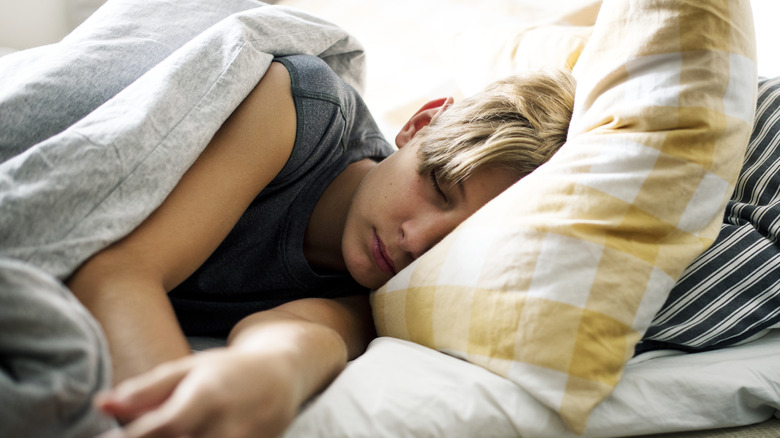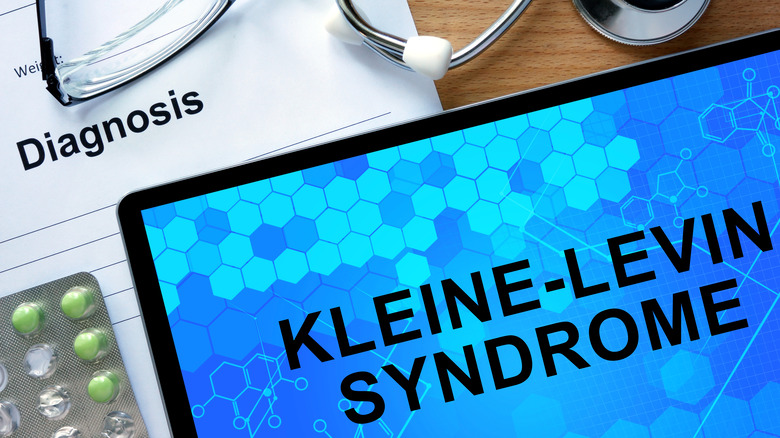What Is Sleeping Beauty Syndrome?
Much like the Disney princess who falls into an enchanted sleep in the story of "Sleeping Beauty," those affected by "sleeping beauty syndrome" also find themselves sleeping for hours on end. This condition, known as Kleine-Levin syndrome (KLS), involves repeated ongoing episodes of extreme sleepiness that affect one's ability to function (via Healthline). So much so, that those diagnosed with KLS may spend as much as 20 hours out of a 24-hour period asleep.
Although rare, researchers have found that while a diagnosis of KLS is more prevalent in adolescent males, females generally experience the disease more long-term (via Indian Journal of Psychological Medicine). However, the hypersomnia experienced by those with KLS does not always occur daily, in fact, bouts of sleepiness may come quite irregularly, as much as a decade apart, according to Healthline.
So what are the symptoms associated with "sleeping beauty syndrome" and what courses of treatment are available?
Treatment and support for those with KLS
Symptoms associated with KLS are often emotional as well as physical. Behavioral changes such as irritability, anxiety, and depression may accompany an episode, as well as physical symptoms such as hallucinations, confusion, or an increase in appetite or libido (via Healthline). Episodes can last for several days or even several months, and it's not uncommon for those affected to experience difficulties with memory during these times.
Although there is no medical cure for KLS, stimulants may prove effective in managing symptoms of extreme fatigue (via Stanford Health Care). Although more research is still needed, psychiatric medications such as lithium may also be prescribed in some treatment plans to help reduce the frequency and length of episodes when they occur. According to experts at Intermountain Primary Children's Hospital, episodes in children often begin to diminish over time, and have been shown to go away on their own within an average of 8 to 12 years' time, though this may differ on a case-by-case basis.
To best support someone diagnosed with KLS, the Sleep Foundation suggests closely monitoring for any depression symptoms, creating a safe space where the person can be looked after and kept free of injury while sleeping, and rescheduling any major activities or events until after the fact.
If you or someone you know is struggling with mental health, please contact the Crisis Text Line by texting HOME to 741741, call the National Alliance on Mental Illness helpline at 1-800-950-NAMI (6264), or visit the National Institute of Mental Health website.


